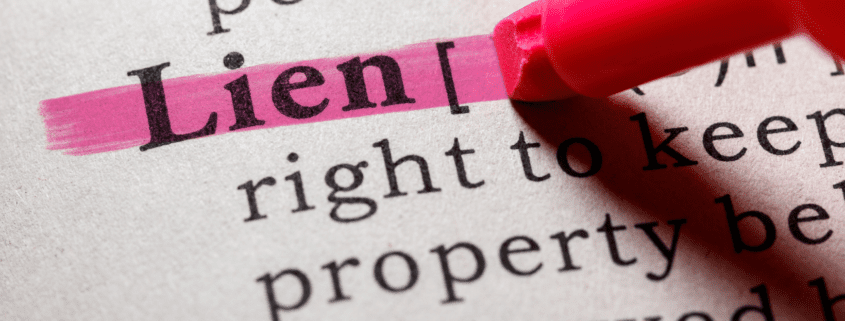Tax Liens: What Are They and How to Avoid One
The Internal Revenue Services (IRS) works swiftly when taxpayers fail to pay taxes on time, or at all. Failure to pay or late payment of taxes triggers an IRS notification to you or your business of noncompliance, and outlines the necessary steps to rectify that noncompliance. When those warnings are not acted on, further consequences and penalties ensue. Non payment of taxes can have serious implications for you and your property in the form of a tax lien on your property.
Learn more about what tax liens are and how to avoid them here:
What is a Tax Lien?
According to the Internal Revenue Service (IRS), “a federal tax lien is the government’s legal claim against your personal property when you neglect or fail to pay a tax debt.” IRS will alert you if there is a balance due and they will tell you the date by which the debt must be collected. The tax lien acts as a method of guaranteed payment for the unpaid taxes owed. Other agencies besides IRS collect tax liens: California Department of Tax and Fee Administration, Franchise Tax Board and Employment Development Department (EDD).
The National Tax Lien Association found that approximately $21 billion of real estate property taxes are delinquent each year in the United States. Neglect, refusal, or failure to pay the debt on time will result in IRS completing a public document of a Notice of Federal Tax Lien that notifies creditors that the government has a right to your property.
In some cases, IRS can instead levy your property. A tax levy uses the physical property to pay off the tax debt when tax debt payment or payment plan arrangements are not made. When this happens, IRS seized the property and has control to sell the property and any personal items or assets that you have in order to recoup the money they are owed.
How Does a Tax Lien Impact you?
Property acquired by IRS through a lien can be sold at auction for the amount owed plus any interest incurred. During the auction, creditors can bid against each other for your property. The proceeds of an auction benefit the governmental agency who is owed back taxes.
Not only can your property be auctioned off, here are other ways a lien can impact you:
- Assets- All of your current and future assets (vehicles, properties, investments, etc.) are tied to the lien while it’s active.
- Credit– While having an active or past tax lien no longer impacts your credit score, it may make it more difficult to obtain credit. The lien is a public record.
- Business- Liens are tied to a business, its property, and accounts receivable.
- Bankruptcy- Filing for bankruptcy does not negate a Notice of Federal Tax lien. The lien itself may continue post bankruptcy even though other debt is cleared.
How Do I Stop A Tax Lien?
The best way to avoid a tax lien is to pay your debts on time and in full, or reach a settlement with IRS. If you or your business are facing a tax lien, the best way to conclude the lien is by paying the amount due in full by the due date. In cases where full payment by the due date is not an option, IRS does offer alternative options.
In some cases, IRS will release the lien if there is an agreement between IRS and the taxpayer to pay the amount owed in an automatic payment plan until the debt is paid in full. In this case, you keep the asset in your possession.
An alternative is through discharging the property to cover the tax lien. IRS, or any debt collector, cannot attempt to collect the debt owed after bankruptcy approval. However, if a court approves a bankruptcy suit, keep in mind that not all properties qualify for discharge, nor does everyone qualify for discharge.
One way to maintain your assets in a tax lien is through withdrawal notices. This withdrawal notice removes the public notice that your property on lien, while still in debt, is not available for other creditors to bid on. You still owe the amount specified by IRS, but your property will not be available for bidding.
Once a lien is released by paying the penalty along with interest in full, the official record is mailed out to the County Recorder office and the secretary of State within 40 days. You do not receive the notification directy. For a copy of the letter, you must request a status of lien release from your local County Recorder’s office.
Have you received a Notice of Federal Tax Lien from IRS? Contact our team at Milikowsky Tax Law to help you through the process. Our experienced team of tax lawyers are your advocate in the face of IRS, EDD, CSLB, CFTB and other government audit and inquiry.



